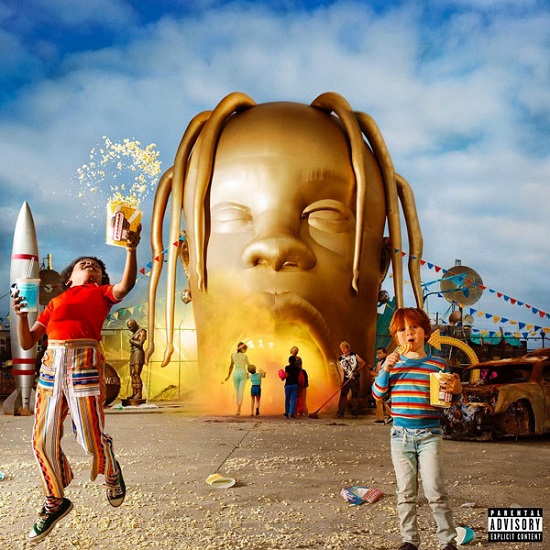It seems like yesterday when Travis Scott released a solid buzz-building mixtape, Days Before Rodeo which led to the birth of his debut album Rodeo. His sixth sense for experimenting with various sounds has made him an artist with a unique voice. Although his sophomore album, Birds In The Trap Sing McKnight was filled with intoxicating sounds, many fans still consider Rodeo as the gold in his discography.
Astroworld is the Houstonians third album; it is one many people have longed for. On Astroworld he reunites with previously featured artists like Migos, The Weeknd, Nav, Kid Cudi, and 21 Savage. He also invites a wave of fresh collaborators like Gunna, Juice WRLD, Drake, Frank Ocean, and Pharrell to join the party. One consistent element in all his albums is the exquisite production. With Mike Dean in charge, nothing short of that can be expected.
‘Sicko Mode’ is like a fusion of the best parts of three different songs. Drake and Travis flow like two long lost brothers reuniting and identifying the things they have in common.
Travis Scott creates music that makes your soul leave your body. ‘Stop Trying To Be God’ is a great example of that statement. This song is well-engineered and created to see any listener get lost in the groove. With Kid Cudi’s signature hum and the harmonica played by Stevie Wonder, La Flame creates a record sends chills down the spine. The repetition of “Fuck the club up” by Sheck Wes in the chorus of ‘No Bystanders’ prepares a spot for this song on every club DJ’s playlist.
‘Skeletons’ is proof that Travis Scott doesn’t do anything basic. He fuses psychedelic rock, pop, and rap into this song that results in a splash of sounds that are strikingly creative. This leads to the smooth guitar riffs and sweet hook on ‘Wake Up’. The sound of the flute which rings on ‘Yosemite’ makes this a trap melody. Nav’s outro plays no role in the song, as his low vocals make him sound disconnected from the song.
Travis Scott’s discography is like a morgue filled with beats he has killed. He continues to build on that legacy with Astroworld. Scott has no failed experiment on this album. Every beat switch, instrument infested track, and fusion of sounds brings out the creativity in the production and his style. The production on the record is one of its finest qualities. The guitar riffs on ‘Wake Up’, the harmonica on ‘Stop Trying To Be God’, and the flute in ‘Yosemite’, are unforgettable.
Travis Scott invites a league of top-rate collaborators to the album. Unlike most artists who would like to utilize featured guests to the maximum, Scott takes a different approach. There are many contributors on the album, some even unmentioned. The interesting thing about his approach is, on songs like ‘Stop Trying To Be God’, ‘Skeletons’, and ‘Yosemite’ for example, not all the guests play major vocal roles in singing as they might usually do. This genius approach by Scott leads to a blend of so many sounds, vocals that act as condiments on these songs.
Astroworld is no rodeo or birds in the trap singing McKnight, but it’s a beautiful creation of sonically striking sounds.



